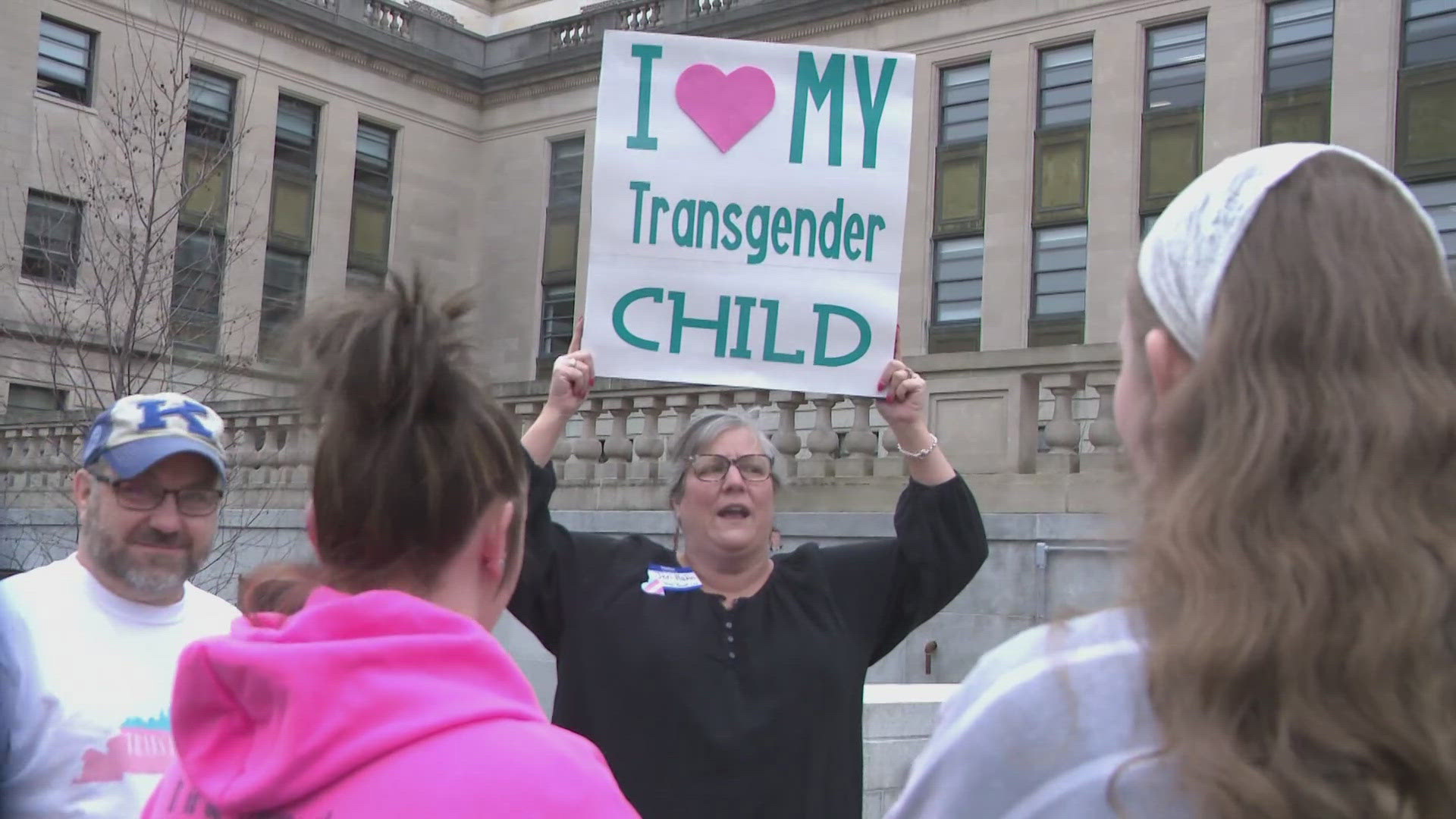KNOXVILLE, Tenn. — In April 2023, the American Civil Liberties Union and a group of other advocates filed a lawsuit against Tennessee hoping to block the state's law restricting access to gender-affirming care for transgender youth. Soon, arguments from that lawsuit will be heard in the U.S. Supreme Court.
In September 2023, a federal appeals court allowed the law to go into effect. It prevents transgender youth from getting care in the state to affirm their gender and treat gender dysphoria, restricting access to treatments like hormone therapy and puberty blockers. In the court's opinion, justices cited the Dobbs v. Jackson Women's Health Org. in many of its conclusions.
It also said that no tradition exists in the U.S. to determine what "level of generality" a parent can have to make decisions for their children.
"The government has the power to reasonably limit the use of drugs, as just shown. If that’s true for adults, it’s assuredly true for their children, as also just shown. This country does not have a custom of permitting parents to obtain banned medical treatments for their children and to override contrary legislative policy judgments in the process," the ruling said.
After the appeals court handed down its opinion, the ACLU asked the U.S. Supreme Court to intervene. The ACLU said on June 24 that the Supreme Court would hear arguments. The court is not expected to hear arguments until next fall.
Ray Holloman, the chair of the Tennessee Transgender Task Force, said families have either been moving out of the state or driving over state lines to find health care for transgender minors since the law went into effect.
"A lot about gender-affirming care under the of age 18 is social transition, and stopping puberty. Because then, you don't have to try to reverse the effects at that point," he said. "We know that gender-affirming care saves lives, and so by taking away this access to this necessary medical care, it just means that the mental health costs go up. We start seeing that, you know, kids don't want to go to school because they're going to be misgendered. They don't feel comfortable in their body, so they don't want to be seen by anybody else."
In the lawsuit, the ACLU argued that the law blocks medical care specifically for transgender youth, and said untreated gender dysphoria is associated with severe harm like anxiety, depression and suicidality. It also says Tennessee's law violated the 14th Amendment of the U.S. Constitution by blocking hormone therapy for transgender minors but allowing similar treatments for cisgender minors.
The lawsuit also argues that the law violates the right to parental autonomy and is preempted by the Affordable Care Act.
"We represent three teenagers and their families, and also a doctor. The teenagers were receiving gender-affirming health care before the law went into effect in Tennessee," Lucas Cameron-Vaughn, a staff attorney with the ACLU of Tennessee. "They're losing access to this much-needed medical care, and this medical care has allowed their children to flourish, and that's being taken away.
He said he expects the Supreme Court justices will issue their opinions between the summer and spring of next year.
"This is the first time that the Supreme Court will take a case that involves constitutional protections that transgender people might have," said Cameron-Vaughn. "These bans, they don't just destabilize the lives of transgender youth, but they also disrupt their families, their communities around them, and they threaten established legal protections with far-reaching implications for the larger community."
The ACLU said similar restrictions to gender-affirming care have been blocked in states like Arkansas, Alabama, Florida, Georgia, Idaho, Indiana and Kentucky. It also said in June 2023, a federal court in Arkansas struck down that state's law by finding it violated the 14th Amendment and the First Amendment.
"I did not expect that the Supreme Court would take it up in the way that they did in this quickly. But I knew that it was going to have to get outside of the state," Holloman said. "We've created this inequity ourselves by singling out our trans youth in this type of way. So, I hoped that they would take it up, just so that there can be a broader conversation about it."

